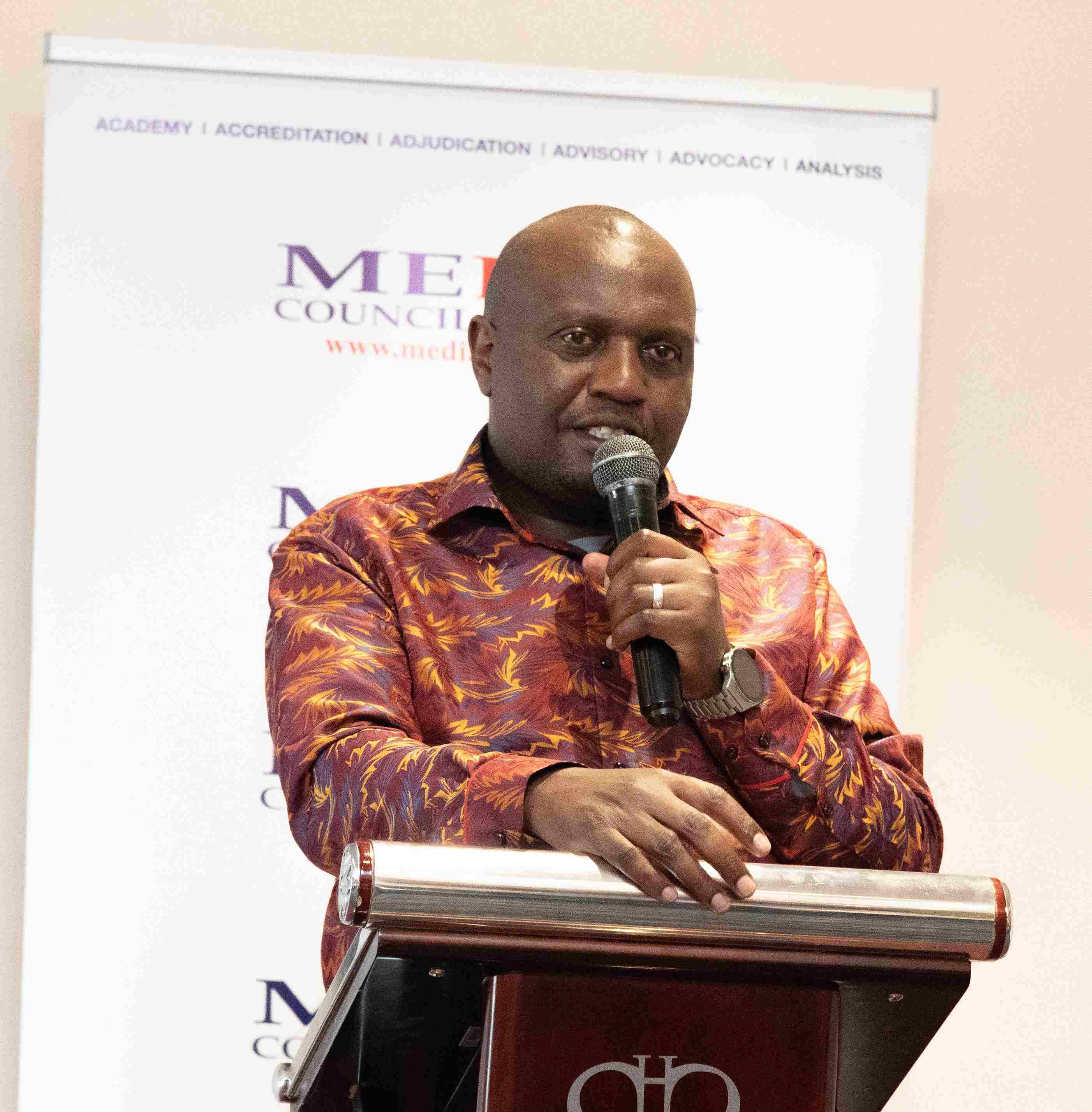
The Media Council of Kenya (MCK) is urgently calling for concerted efforts to combat the escalating threat of misinformation and disinformation.
MCK CEO David Omwoyo has cautioned that the unchecked spread of false information severely erodes the national fabric, emphasising the critical need for digital literacy to promote responsible online behaviour.
"Unchecked disinformation can tear a country apart or mislead it. It's time, as a nation, we engage in deep reflection on these issues," he stated during a panel discussion at the National Intelligence Research University Symposium in Nairobi.
Mr Omwoyo highlighted the growing problem of technology-facilitated disinformation, where perpetrators manipulate logos and videos to target organisations and individuals.
"This poses a significant risk, as hackers can infiltrate systems, replace documents, or disseminate sensitive material. We must strategise on how to effectively counter this threat," he added.
He also addressed the blurring lines between journalism and activism, raising concerns about headline accuracy and fair commentary.
"There is a pressing need for training and information literacy to ensure both the public and journalists understand the importance of rigorous verification," he asserted.
Furthermore, Mr. Omwoyo called for enhanced collaboration with social media platforms to improve content moderation and implement clear labelling of verified information sources.
"Our goal should be to empower individuals with the tools and critical thinking skills necessary to navigate the online information landscape effectively," he concluded.
Demas Kiprono, Chair of the Media Complaints Commission, emphasised the importance of safeguarding freedom of expression in the digital realm, referencing Article 33 of Kenya’s Constitution, which guarantees the right to seek, receive and impart information.
He explained that while the digital space provides avenues for interaction, constitutional limitations must be observed.
"While you exercise your freedom of expression, ensure it does not cause real harm," he cautioned.
Mr Kiprono also highlighted the lack of adequate regulation of major technology companies in Africa, noting their insufficient investment and business models that fail to prioritise the region.
"A concerted effort is required, and the government must advocate for greater sensitivity and ensure that their community regulations align with our laws and national aspirations," he urged.